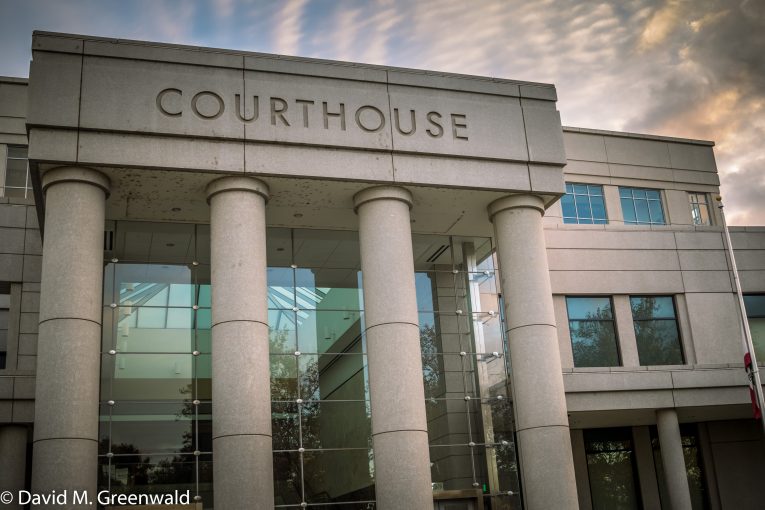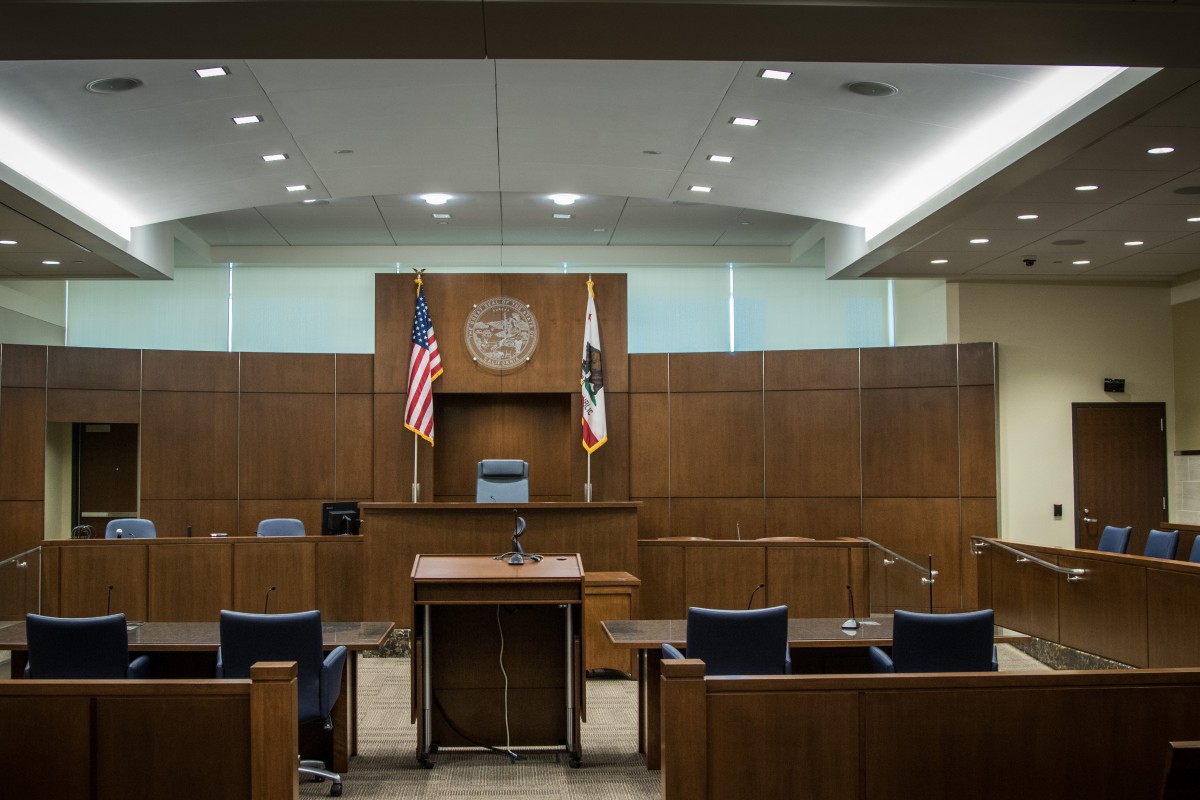

By Zachary Zolmer
A pretrial motion to suppress evidence considered whether or not the defendant submitted to breathalyzer tests voluntarily.
At about 7:10 p.m. on July 29, 2018, Yolo County Deputy Sheriff Brian Young was patrolling Sand Cove Beach from a watercraft on the Sacramento River when a man on a jet ski crossed in front of him. Per Deputy Young’s arrest report and testimony, the ski was generating a wake, a white-water trail of water produced by speeds exceeding the speed limit of five miles per hour enforced on personal watercraft (PWC) within 200 feet of a swim beach. Young had positioned his craft approximately 40 yards from the beach’s opposite shore, which with the river’s width left him roughly 200 feet from the swim beach – this way, any PWC generating a wake between him and the beach would be violating the law. Young testified that Jacob Martin Davenport’s ski did exactly that, at a speed of 15 miles per hour.
After triggering his craft’s siren and patrol lights, Young pulled side-by-side with Davenport’s stopped ski and placed a foot into the ski’s well to keep the two crafts from floating apart. Questioning Davenport, Young smelled an “alcoholic beverage odor,” which, combined with the alleged speeding, compelled him to conduct field sobriety tests (FSTs). Because these could not properly be conducted on the choppy river, he then towed the ski with Davenport to a dock about 600 feet upstream. Among a handful of FSTs, a preliminary breath test – with the accompanying advisement form, which includes the right to refuse the test and which Young testified he read to Davenport verbatim from his laminated copy before the test – returned a blood alcohol content (BAC) of 0.114, where the legal limit is .08. Based on the totality of the FST results, Young decided to arrest Davenport for Boating Under the Influence (BUI).
At that point, Young testified, he read aloud the advisement regarding chemical testing (per protocol), which requests a blood or breath sample that the arrestee has the right to refuse. Young said Davenport agreed to the test, and after the first two-breath sample was voided by a belch after the first breath, 15 minutes later Young administered the test again when back-to-back breath samples each registered a 0.09 (a successful test must return two breaths within a point of each other).
In cross-examination, Young confirmed the arrest came near the end of a 12-hour shift, and that neither he nor his craft was equipped with any recording device. He couldn’t recall what he’d first asked Davenport when he approached him on the river, but said he usually starts such conversations with the reason for the stop. He acknowledged it wasn’t a crime for Davenport to have alcoholic odor on his breath, but stated he didn’t believe Davenport when he denied he’d been drinking. He confirmed that the dock on which the FSTs were conducted was private and simultaneously occupied by other deputies and arrestees. He then agreed that Davenport had refused a preliminary breath test while still on the water before he was towed to the dock, and that he’d told Davenport he could go if his BAC was okay. He admitted he didn’t fill out either of the breath test advisement forms, which include four questions with yes/no check boxes, but added that his arrest reports always address the information on the  forms, making the filing of the forms themselves redundant.
forms, making the filing of the forms themselves redundant.
The defense then called Jacob Davenport as a witness. Davenport explained the jet ski was borrowed and admitted he didn’t know all its operational rules, as this was only his second time operating one. He had just gotten on the river and doubted he was doing 15 miles per hour. He recalled arcing in circles, waiting for a friend to join him, when he heard the siren behind him. When he saw the deputy approach, he got off the throttle immediately. He remembered Young saying, “You can’t do that,” and testified Young never took issue with the ski’s speed – he first learned about the speeding charge when he read the police report provided by his lawyer, he said. He affirmed the report read differently from his recollection of events.
Davenport remembered that, still on the river, Young pulled out a breathalyzer and told him he’d let him go if his breath was under the limit. “He said, ‘Do me a favor, blow into this,’” Davenport said. When he did, Young repeatedly instructed him to blow harder, and never mentioned the results of these tests. “He said, ‘Do me a favor, put this rope around your handlebars,’” Davenport said, in reference to when the ski was towed to the dock. He recalled being on a boat near the dock, not on the dock itself. He testified he never saw the advisement forms the day he was arrested—those Young had testified to reading to Davenport verbatim, per protocol, which explains the voluntary nature of the breath tests. Davenport stated he wasn’t told he could refuse the preliminary or evidentiary breath tests. He said he submitted because the officer told him to. He testified he wouldn’t have taken the tests had he been made aware of his right to refuse.
In cross-examination, Davenport clarified that he’d started drinking when he got to Sand Cove Beach but couldn’t remember the exact amount, only that he would’ve drunk Coronas. He’d been advised before not to speed on the jet ski near restaurants or homes and agreed one shouldn’t speed in a popular area. He reiterated what he recalled was Young’s initial contact with him (“Hey, you can’t do that”), and believed it was in reference to his circling the ski in the water. Asked how one steers in circles without speeding, Davenport replied that you don’t have to go quickly.
Recalled to the stand, Deputy Young distinguished between a jet ski’s bucket and its throttle: with the “bucket down,” a ski automatically goes about five miles per hour, so that any throttle generates additional speed and thus creates a wake. He clarified that the FSTs occurred on the dock, while the chemical testing took place on the boat. He stated he didn’t tow the ski by a rope over its handlebars but instead used the bow’s Y. He testified that the reason for the initial stop was the creation of a wake, and that a wake and speeding are one and the same.
In cross-examination, he confirmed that his arrest report said nothing about Davenport moving in circles. Having listened to Davenport’s testimony about the first preliminary breath test offered while still on the river, he remembered Davenport agreed to the test (whereas earlier Young recalled Davenport refused), but stated he did a “fake blow” into the breathalyzer, where separation between the mouth and the device’s mouthpiece registers an insufficient sample. Asked if he testifies that he read the advisements, Young responded in the affirmative.
The defense’s argument reminded the court that the odor of alcohol on the breath isn’t a crime. Davenport did not voluntarily submit to the breath tests, the defense said, and the deputy did not read the advisements. It argued that the officer acted without reasonable suspicion, and that had Davenport been made aware of his right to refuse, he would have.
The prosecution argued for probable cause by the poorly performed FSTs and reiterated Deputy Young’s testimony that he’d read the breath test advisements aloud, verbatim. It also submitted two court cases, namely Birchfield v. North Dakota (2016), which held that law enforcement didn’t need consent to administer breath tests on suspected drunk drivers.
With the introduction of cases it hadn’t reviewed, the defense requested the opportunity to read the cases and prepare a written brief. Judge Sonia Cortés agreed the defense should be given the opportunity to respond and set a deadline of July 26 for the defense’s brief on the issue of consent. A deadline for the prosecution’s response was set for August 9, and the defense’s reply is due August 16. A ruling is scheduled for August 23 at 10 a.m.





